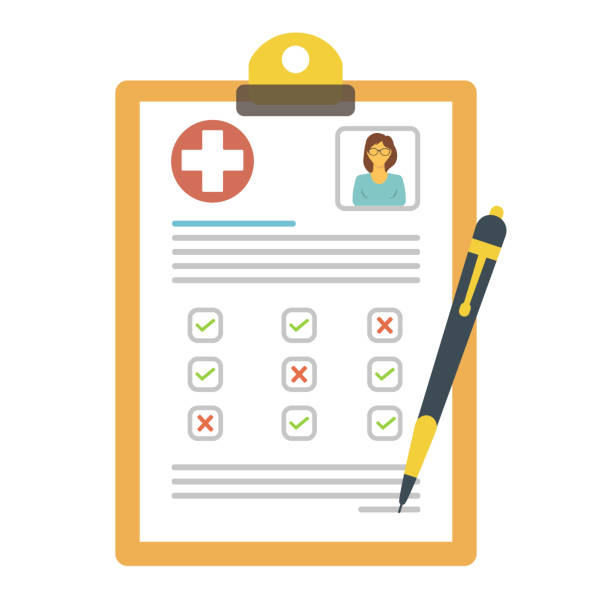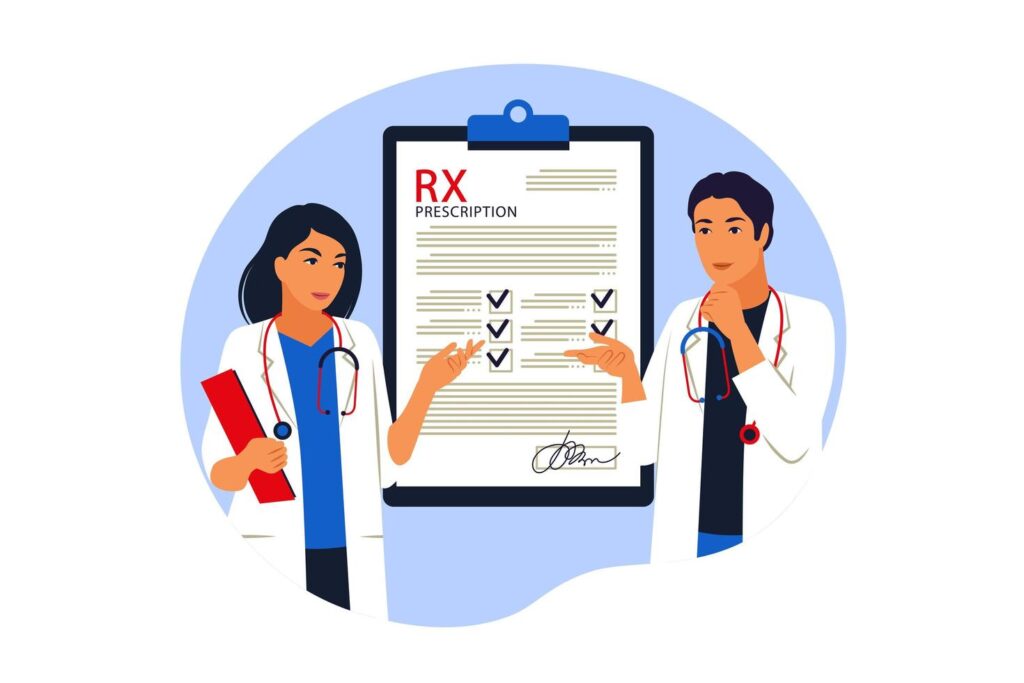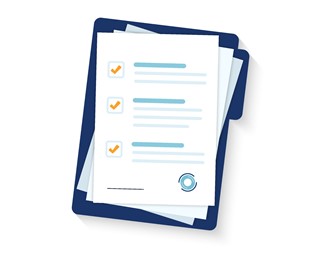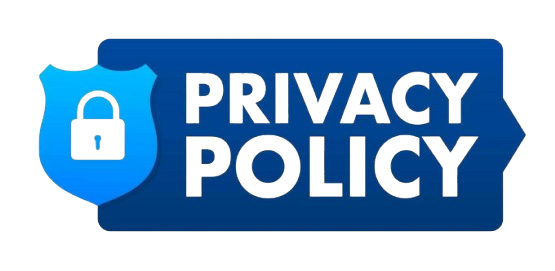CPT 90791 vs CPT 90792 – When to Use Each in Psychiatry Billing

When it comes to psychiatry billing, two CPT codes (CPT 90791 and CPT 90792) cause frequent confusion for providers as well as medical coders/billers. Both CPT codes represent psychiatric diagnostic evaluations, yet the difference lies in whether medical services are included during the assessment. Understanding when to bill 90791 versus 90792 is not just a matter of getting paid correctly rather it is about accurate claim submission, staying compliant and preventing costly claim denials. Insurance providers including Medicare and Medicaid apply strict criteria to these codes. Applying these CPT codes can trigger compliance audit, payment delays and even recoupments. Whether you are a psychologist, psychiatrist, licensed clinical social worker (LCSW), psychiatric nurse practitioner (PMHNP) or part of a medical billing team, mastering these codes will help you optimize reimbursement while maintaining compliance.
BLOG OUTLINE
- Why This Matters in Psychiatry Billing
- Understanding CPT 90791
- Key Differences Between CPT 90791 and CPT 90792
- Modifiers, Place of Service (POS), and Related Codes for 90791 & 90792
- Common Billing Scenarios for CPT 90791 and CPT 90792
- Medicare & Insurance Variations for CPT 90791 and CPT 90792
- Common Mistakes and Denials with CPT 90791 and CPT 90792
- Best Practices for Compliance and Reimbursement
- Conclusion
- FAQs
Why CPT 90791 and CPT 90792 Matters in Psychiatry Billing
Accuracy in CPT coding is the foundation of medical billing. When it comes to psychiatry medical billing, choosing between CPT 90791 and CPT 90792 might seem like a minor decision, but it has major consequences for mental health providers. Using the CPT 90791 in place of CPT 90792 leads to claim denials due to mismatch between provider credentials and billed services, lower reimbursement rates if payers downcode the claim, delayed payments while insurance companies request additional documentation and audit triggers if repeated errors suggest noncompliance with payer guidelines. From compliance perspective, using CPT 90791 and 90792 can damage practice reputation with insurance networks, especially with Medicare and Medicaid. These payers have specific documentation requirements for psychiatric diagnostic evaluations. Failure to meet these guidelines may result in overpayment, recoupments or even fraud investigations in severe cases.
For patients, accurate coding ensures:
✔️ Continuity of care (clear documentation for future providers)
✔️ Accurate treatment planning based on evaluation type
✔️ Proper insurance coverage without unnecessary out-of-pocket costs
In short, knowing exactly when to use CPT 90791 vs CPT 90792 is a critical risk management tip and a good billing practice for mental health professionals.
For Insurance Credentialing, Medical Billing Services and other services
Understanding CPT 90791
In medical coding for psychiatry billing, CPT 90791 represents a psychiatric diagnostic evaluation without medical services. It is basically the initial step in establishing a patient’s mental health treatment plan focused on clinical assessment, diagnostic formulation, and treatment recommendations. It does not include prescribing medication or managing medical conditions.
Who Can Bill CPT 90791
CPT 90791 can be billed by non-prescribing mental health professionals, such as:
- Psychologists (PhD, PsyD)
- Licensed Clinical Social Workers (LCSW)
- Licensed Professional Counselors (LPC)
- Marriage and Family Therapists (LMFT)
- Psychiatrists or psychiatric nurse practitioners if no medical services are provided during the evaluation

Core Components of a 90791 Session
When billing for CPT code 90791, documentation should reflect:
- Comprehensive patient history (including presenting concerns, psychiatric history, family history, and social history)
- Psychosocial assessment (relationships, work, environment, cultural context)
- Mental status examination (MSE)
- Diagnostic formulation using DSM-5 or ICD-10 criteria
- Treatment plan recommendations

When to Use CPT 90791
You should use 90791 CPT code when:
- Conducting an initial intake session for a new patient without medication management
- Performing a re-evaluation after a significant gap in care, if no medical services are included
- Assessing a patient prior to referring them to a prescriber

Example: A psychologist providers consultation to a patient for 60 minutes whereby reviewing his/her mental health history, conduct an MSE, and develop a treatment plan. No medication prescribed. CPT 90791 is the correct CPT code to bill for this session.
Understanding CPT 90792
CPT 90792 code is used for a psychiatric diagnostic evaluation with medical services. It includes everything covered under CPT 90791 + medical examination such as a physical exam, medication management, and medical decision-making. 90792 CPT code reflects the integrated clinical and medical nature of psychiatry, where evaluation often involves both psychological assessment and physiological considerations.
Who Can Bill CPT 90792
Only prescribing mental health professionals can bill CPT 90792, such as:
- Psychiatrists (MD, DO)
- Psychiatric Nurse Practitioners (PMHNP)
- Physician Assistants specializing in psychiatry
- In rare cases, other prescribing providers working in a psychiatric setting (based on payer rules)

Core Components of a Session under CPT 90792
In addition to the clinical evaluation elements of 90791, documentation for 90792 typically includes:
- Medical history review (including current medications, allergies, and relevant medical diagnoses)
- Physical examination (if clinically indicated)
- Medication evaluation and management
- Medical decision-making related to psychiatric care
- Integration of medical and psychiatric findings into a unified treatment plan

When to Use CPT 90792 Code
When billing for CPT 90792:
- Conduct an initial psychiatric evaluation that includes prescription of medication or review of current medications
- Perform a diagnostic assessment that requires medical clearance before starting psychiatric treatment
- Re-assess a patient with significant medical-psychiatric complexity

Example: A psychiatrist evaluates a patient for depression, performs a mental status exam, reviews past medical history, adjusts their SSRI dosage, and orders lab tests. CPT 90792 is the correct code
Key Differences Between CPT 90791 and CPT 90792
While CPT 90791 and CPT 90792 both describe psychiatric diagnostic evaluations, the presence or absence of medical services is the deciding factor in selection and application of code.
CPT 90791 Versus CPT 90792 Comparison Table
| Feature | CPT 90791 | CPT 90792 |
|---|---|---|
| Type of Service | Psychiatric diagnostic evaluation without medical services | Psychiatric diagnostic evaluation with medical services |
| Includes Medication Management? | ❌ No | ✅ Yes |
| Requires Prescriber? | ❌ No | ✅ Yes |
| Eligible Providers | Psychologists, LCSWs, LPCs, LMFTs, psychiatrists (if no meds) | Psychiatrists, PMHNPs, psychiatric PAs |
| Medical History Review | Optional, non-medical focus | Required, with medical relevance |
| Physical Examination | Not included | May be included if clinically necessary |
| Typical Session | Intake or reassessment without prescribing | Intake or reassessment with medication adjustments |
| Common Payers’ View | Accepted by most for non-prescribing roles | Restricted to prescribing providers |
| Telehealth Billing | Often allowed | Allowed if telehealth rules permit medication management |
Key Takeaways
- Medical services = CPT 90792 -> If the provider prescribes, adjusts, or evaluates medications, CPT 90792 is typically correct.
- No medical services = CPT 90791 -> If the session focuses purely on clinical evaluation without prescribing or managing medications, CPT 90791 is the right choice.
- Document clearly -> If a claim is audited, your notes should leave no doubt why you selected CPT 90791 over CPT 90792 or otherwise.
Examples :
- Psychologist intake session with no medication discussion → CPT 90791
- Psychiatrist intake session with medication adjustment → CPT 90792
Modifiers and Coding Guidelines for 90791 & 90792
While CPT 90791 and CPT 90792 are distinct psychiatric diagnostic evaluation codes, accurate billing often requires pairing them with modifiers, Place of Service (POS) codes, and other CPT/HCPCS codes to ensure compliance and proper reimbursement.
Modifiers
For telehealth psychiatric evaluations, use Modifier 95 when billing 90791 or 90792 via audio-video sessions. Some payers may still accept Modifier GT, though most prefer 95. Use Modifier 25 only when a separate E/M service occurs the same day, and Modifier 59 for distinct procedural services. Always confirm each payer’s requirements, as rules differ. For details, see our full guide on mental health billing modifiers.
Place of Service (POS) Codes
Coding POS in mental health billing indicates where the psychiatric evaluation took place, which directly affects reimbursement. For a deeper breakdown, see our complete guide on POS codes in mental health billing.
While CPT 90791 and CPT 90792 are standalone initial evaluation codes, they often appear in workflows alongside:
- CPT 90833, CPT 90836, CPT 90838 are Psychotherapy add-on codes (when therapy is provided alongside medication management).
- CPT 90832–90837 refers to Psychotherapy sessions following the initial evaluation.
- H0031 speaks for Behavioral health assessment by a non-physician (often used in Medicaid settings).
Common Billing Scenarios for CPT 90791 and CPT 90792
When clinical and medical services overlap, applying CPT coding correctly in psychiatry is not always straightforward. The following scenarios illustrate how to decide between CPT 90791 and CPT 90792.
🧠 Scenario 1: Psychologist Intake Session
- Provider Type: Licensed Psychologist (PhD)
- Service Provided: 60-minute diagnostic interview, psychosocial assessment, mental status exam, treatment plan. No medication discussion.
- Correct Code: CPT 90791
- Reasoning: No medical services or prescription management took place.
💊 Scenario 2: Psychiatrist Initial Evaluation with Medication Start
- Provider Type: Psychiatrist (MD)
- Service Provided: Psychiatric diagnostic evaluation, review of patient’s medical history, discussion of treatment options, prescription for antidepressant medication.
- Correct Code: CPT 90792
- Reasoning: Includes medical decision-making and medication management.
📱 Scenario 3: Psychiatric Nurse Practitioner Telehealth Session
- Provider Type: PMHNP
- Service Provided: Virtual psychiatric diagnostic evaluation, mental status exam, medication dosage adjustment for ADHD.
- Correct Code: CPT 90792 (if payer telehealth policy allows for medication management services)
- Reasoning: Medical services and medication changes were performed.
🔄 Scenario 4: Re-Evaluation by a Therapist
- Provider Type: Licensed Clinical Social Worker (LCSW)
- Service Provided: 50-minute re-assessment after 18 months without care, mental status exam, updated treatment plan. No medication changes.
- Correct Code: CPT 90791
- Reasoning: Non-prescriber; no medical services performed.
🩺 Scenario 5: Psychiatrist Evaluation Without Medication
- Provider Type: Psychiatrist (MD)
- Service Provided: Psychiatric evaluation, psychosocial assessment, mental status exam, decision to defer medication until lab results return.
- Correct Code: CPT 90791 (in many cases)
- Reasoning: Even though the provider is a prescriber, no medical services or medication management occurred at this visit. Some payers still prefer 90792 in this case — always verify payer rules.
Medicare & Insurance Variations for CPT 90791 and CPT 90792
While CPT 90791 and CPT 90792 have standardized definitions under the American Medical Association (AMA), yet, CPT coding system, coverage rules, reimbursement rates, and provider eligibility can vary significantly by payer. This makes it critical to learn differences to avoid denials and ensuring maximum reimbursement.
Medicare Rules
- Coverage: Medicare generally covers both 90791 and 90792 for eligible providers, but only prescribers may bill 90792.
- Eligible Providers:
- 90791: Psychiatrists, psychologists, clinical social workers (LCSW), clinical nurse specialists, and other qualified non-prescribers.
- 90792: Only psychiatrists, psychiatric nurse practitioners (PMHNPs), and certain physician assistants.
- Telehealth: Both codes are covered for telehealth under current CMS rules, but documentation must support all required components.
- Frequency Limits: Medicare typically allows one psychiatric diagnostic evaluation per patient per provider within a set period (often once per year), unless medical necessity is documented.
Medicaid Variations
- State-by-State Rules: Medicaid is state-administered, so 90791/90792 coverage policies can differ widely.
- Some states allow multiple evaluations per year with prior authorization.
- Others require specific modifier usage when performed via telehealth (e.g., GT, 95, FQ, FR).
- Reimbursement rates can vary significantly between states and may be lower than Medicare or private payers.
Private Insurance Differences
- Some commercial carriers do not differentiate between 90791 and 90792, paying the same rate for both.
- Others require 90792 only for prescribers but may still allow psychiatrists to bill 90791 if no medical services were provided.
- Certain plans require prior authorization for any psychiatric diagnostic evaluation, regardless of code.
Example: A psychiatric nurse practitioner in California can bill 90792 for an initial evaluation with medication management under Medi-Cal requirements, but must use a telehealth modifier if performed virtually
Common Mistakes and Denials with CPT 90791 and CPT 90792
Even experienced mental health providers and billers can run into claim denials and audit risks when coding psychiatric diagnostic evaluations. The difference between 90791 and 90792 may seem small, but insurance carriers closely scrutinize these claims — especially when billed incorrectly or without proper documentation.
Using CPT 90792 for Non-Prescribers
- Error: A psychologist, LCSW, or LPC bills 90792 despite not providing medical services or holding prescriptive authority.
- Why It’s a Problem: Insurance carriers automatically deny 90792 claims from non-prescribers.
- Prevention: Non-prescribers should always bill 90791 unless a payer has an unusual policy allowing otherwise.
Missing Documentation of Medical Services for 90792

- Error: Prescriber bills 90792 but fails to document medication review, prescription, or other medical decision-making.
- Why It’s a Problem: In an audit, the claim will be downcoded to 90791 or denied for lack of medical necessity.
- Prevention: Clearly document medication management, medical history review, and any physical examination performed.
Billing Both 90791 and 90792 for the Same Patient on the Same Day

- Error: Attempting to bill both codes for a single evaluation session.
- Why It’s a Problem: Most payers will deny one as a duplicate service.
- Prevention: Only one psychiatric diagnostic evaluation code is billable per patient per date of service.
Not Verifying Payer-Specific Rules

- Error: Assuming all insurers treat 90791 and 90792 the same way.
- Why It’s a Problem: Carriers may require specific codes, modifiers, or pre-authorizations — failure to comply results in denials.
- Prevention: Maintain an up-to-date payer-specific CPT coding cheat sheet for psychiatry billing.
Ignoring Telehealth Billing Requirements

- Error: Billing 90792 via telehealth without the required modifier (e.g., 95, GT, FQ, FR) or without documenting audio/video compliance.
- Why It’s a Problem: Telehealth claims may be denied or flagged for overpayment recovery.
- Prevention: Check telehealth policies for each payer and document modality (video, audio) in the patient’s chart.
Quick Tip: Many denials occur not because the wrong code was chosen, but because the documentation doesn’t support the billed service. In psychiatry billing, documentation is your best defense against both claim rejections and payer audits
Best Practices for Compliance and Reimbursement
To ensure accurate billing, avoid claim denials, and maintain compliance when using CPT 90791 or CPT 90792, mental health providers should follow these proven strategies:
- Match the code to the service provided
Use CPT 90791 for initial psychiatric diagnostic evaluations without medical services and CPT 90792 when a medical evaluation, prescription review, or medication management is included. Always verify your choice against the payer’s coverage policy. - Document thoroughly and consistently
Your clinical notes should clearly support the chosen CPT code, detailing the patient’s presenting problem, evaluation method, and — in the case of CPT 90792 — any medical components performed. Well-documented notes serve as both compliance protection and audit defense. - Keep a decision chart in your EHR
Having a quick-reference chart in your Electronic Health Record (EHR) system can help providers and billing staff quickly determine the correct code during intake. - Train staff on payer-specific rules
Because reimbursement policies can differ widely between Medicare, Medicaid, and commercial insurers, staff training on each payer’s coding rules can prevent errors and optimize revenue cycles. - Regular documentation audits
Conduct internal or third-party audits of your psychiatric billing at least quarterly. This helps identify gaps, detect upcoding or undercoding risks, and keep your practice aligned with regulatory compliance standards. - Leverage pre-authorization checks
Some payers may require pre-authorization for initial evaluations, especially under managed care plans. Verifying this upfront can prevent claim rejections and payment delays.
Following these best practices not only boosts compliance but also enhances reimbursement reliability for psychiatric diagnostic services.
Conclusion
Accuracy in coding CPT 90791 and 90792 code is essential for proper reimbursement, compliance, and delivering quality mental health care. Whether you are billing for an initial psychiatric diagnostic evaluation using CPT 90791 or one that includes medical services where CPT 90792 is the appropriate code, understanding documentation, payer rules, and telehealth policies can prevent costly denials. Partnering with an expert billing team ensures your claims are clean, compliant, and paid on time.
Need help with 90791 and 90792 billing? At MedStates Medical Billing, we specialize in mental health claims, payer-specific compliance, and denial prevention. Contact us today for a free consultation and take the stress out of your billing process.


